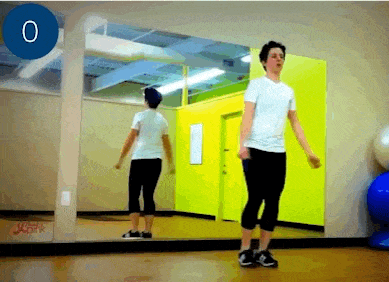---
arxiv: '2006.15418'
tags:
- video
- repetition
datasets:
- countix
---
# RepNet PyTorch
GitHub repository: https://github.com/materight/RepNet-pytorch.
A PyTorch port with pre-trained weights of **RepNet**, from *Counting Out Time: Class Agnostic Video Repetition Counting in the Wild* (CVPR 2020) [[paper]](https://arxiv.org/abs/2006.15418) [[project]](https://sites.google.com/view/repnet) [[notebook]](https://colab.research.google.com/github/google-research/google-research/blob/master/repnet/repnet_colab.ipynb#scrollTo=FUg2vSYhmsT0).
This repo provides an implementation of RepNet written in PyTorch and a script to convert the pre-trained TensorFlow weights provided by the authors. The outputs of the two implementations are almost identical, with a small deviation (less than $10^{-6}$ at most) probably caused by the [limited precision of floating point operations](https://pytorch.org/docs/stable/notes/numerical_accuracy.html).
## Get Started
- Clone this repo and install dependencies:
```bash
git clone https://github.com/materight/RepNet-pytorch
cd RepNet-pytorch
pip install -r requirements.txt
```
- To download the TensorFlow pre-trained weights and convert them to PyTorch, run:
```bash
python convert_weights.py
```
## Run inference
Simply run:
```bash
python run.py
```
The script will download a sample video, run inference on it and save the count visualization. You can also specify a video path as argument (either a local path or a YouTube/HTTP URL):
```bash
python run.py --video_path [video_path]
```
If the model does not produce good results, try to run the script with more stride values using `--strides`.
Example of generated videos showing the repetition count, with the periodicity score and the temporal self-similarity matrix:









